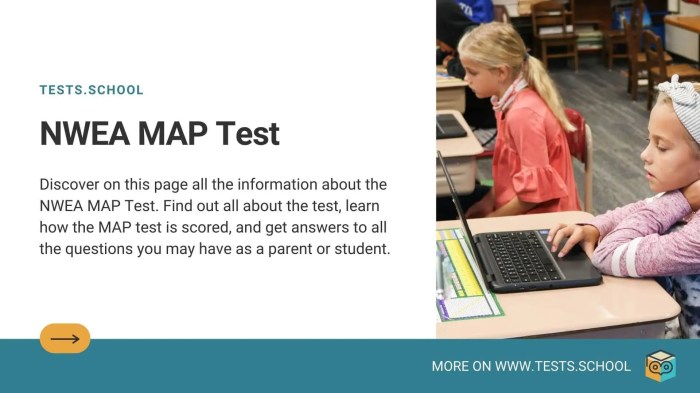As the world geography textbook answer key takes center stage, this opening passage beckons readers into a world crafted with academic rigor and authoritative tone, ensuring a reading experience that is both absorbing and distinctly original.
World geography textbooks provide a comprehensive overview of the Earth’s physical and human geography, offering insights into diverse cultures, landscapes, and global issues. An effective answer key is an indispensable companion to these textbooks, providing students and educators with a valuable tool for enhancing understanding, reinforcing learning, and facilitating self-assessment.
Understanding the Concept of World Geography Textbooks: World Geography Textbook Answer Key
World geography textbooks play a pivotal role in disseminating geographical knowledge and fostering an understanding of the world’s diverse regions, cultures, and environments.
These textbooks provide comprehensive overviews of the physical, human, and environmental aspects of the world, covering topics such as:
- Physical geography: Landforms, climate, vegetation, and water resources
- Human geography: Population distribution, urbanization, economic activities, and political systems
- Environmental geography: Climate change, resource management, and sustainability
Types and Formats
World geography textbooks vary in their level of detail, scope, and presentation format. Some common types include:
- Introductory textbooks: Provide a broad overview of world geography for beginning students
- Regional textbooks: Focus on specific regions of the world, such as Asia, Europe, or North America
- Topical textbooks: Explore specific themes or topics in world geography, such as urbanization, climate change, or economic development
Textbooks may also vary in their presentation format, including traditional print versions, online platforms, and interactive digital resources.
Key Features of a World Geography Textbook Answer Key
An effective world geography textbook answer key plays a crucial role in enhancing students’ understanding of the subject matter. It provides accurate, clear, and organized solutions to exercises and questions, enabling learners to assess their comprehension and identify areas for improvement.
The following are key features that a world geography textbook answer key should possess:
Accuracy
Accuracy is paramount in an answer key. The solutions provided should be free from errors and align with the content of the textbook and relevant geographical knowledge. Incorrect or misleading answers can hinder students’ learning and create confusion.
Clarity
Clarity is essential for an effective answer key. Solutions should be presented in a straightforward and easy-to-understand manner. The use of clear and concise language, logical organization, and visual aids (if necessary) can enhance clarity and facilitate comprehension.
Organization
Organization is crucial for a user-friendly answer key. The solutions should be arranged in a logical and sequential manner, corresponding to the exercises or questions in the textbook. This organization allows students to easily navigate the answer key and locate the solutions they seek.
Benefits of Using a World Geography Textbook Answer Key
A world geography textbook answer key provides invaluable assistance to both students and educators in the learning and teaching process.
For students, answer keys offer several advantages:
- Enhanced Understanding:Answer keys provide immediate feedback, allowing students to check their understanding of concepts and identify areas where they need further clarification.
- Reinforced Learning:By reviewing the correct answers, students can reinforce their knowledge and solidify their understanding of the material.
- Self-Assessment:Answer keys enable students to self-assess their progress, monitor their learning, and identify areas where they need additional support.
Educators also benefit from using answer keys:
- Time-Saving:Answer keys save educators time by providing readily available solutions, reducing the need for extensive grading and feedback.
- Consistency:Answer keys ensure consistency in grading, reducing subjectivity and promoting fairness.
- Assessment Tool:Answer keys can be used as assessment tools to evaluate student understanding and identify areas for improvement.
Common Types of Questions in World Geography Textbook Answer Keys
World geography textbook answer keys typically contain a variety of question types to assess students’ understanding of the material. These questions can range from basic factual recall to more complex analytical tasks.
The most common types of questions found in world geography textbook answer keys include:
Multiple-Choice Questions
Multiple-choice questions present students with a question or statement followed by several possible answers. Students must choose the answer that they believe is correct.
Example:Which of the following is the capital of France?
- London
- Paris
- Berlin
- Rome
Short Answer Questions
Short answer questions require students to provide a brief, concise answer to a question or prompt. These questions typically test students’ knowledge of specific facts or concepts.
Example:Name the largest ocean in the world.
Essay Questions
Essay questions ask students to write a more extended response to a question or prompt. These questions typically require students to demonstrate their understanding of a topic by providing evidence and supporting their arguments.
Example:Discuss the factors that have contributed to the growth of the global population.
Strategies for Using a World Geography Textbook Answer Key Effectively
To maximize the benefits of using a world geography textbook answer key, students and educators can employ the following strategies:
Self-Checking
Students can use answer keys to self-check their understanding of the material covered in the textbook. By comparing their answers to those provided in the key, they can identify areas where they need further clarification or study.
Peer Review
Answer keys can be used for peer review activities. Students can work in pairs or small groups to check each other’s answers. This process can help students identify errors and improve their understanding of the material.
Formative Assessment, World geography textbook answer key
Educators can use answer keys to conduct formative assessments. By reviewing students’ answers, educators can identify common areas of difficulty and adjust their teaching strategies accordingly. This helps ensure that students are meeting the learning objectives of the course.
Considerations for Evaluating World Geography Textbook Answer Keys
When evaluating the quality and effectiveness of world geography textbook answer keys, several key factors should be considered:
Accuracy: The answer key should provide accurate and up-to-date information that is consistent with the textbook and current geographical knowledge.
Comprehensiveness
The answer key should cover all the concepts and questions presented in the textbook, providing detailed explanations and examples to support the answers.
Alignment with Learning Objectives
The answer key should align with the learning objectives of the textbook and curriculum, ensuring that students are able to master the concepts and skills being taught.
Design Principles for Effective World Geography Textbook Answer Keys
The design of world geography textbook answer keys plays a crucial role in enhancing their usability and effectiveness. Here are some key principles to consider when creating visually appealing and user-friendly answer keys:
Clarity and Conciseness:Answer keys should be easy to understand and navigate. Use clear and concise language, avoiding unnecessary jargon or complex explanations. Each question and its corresponding answer should be presented in a straightforward and logical manner.
Use of Visual Elements
Incorporating visual elements such as tables, graphs, and maps can greatly enhance the readability and comprehension of answer keys. Tables can organize and present large amounts of data in a structured and easy-to-scan format. Graphs can visually represent trends, patterns, and relationships between different geographical features or data points.
Maps can provide a spatial context for understanding geographical concepts and relationships.
Consistency and Organization
Maintaining consistency in the formatting and organization of answer keys is essential for ease of use. Use a consistent font, font size, and layout throughout the answer key. Group similar questions together and arrange them in a logical order to facilitate quick reference.
Accessibility
Consider the accessibility needs of diverse users. Provide answer keys in multiple formats, such as digital and print, to accommodate different learning styles and preferences. Use accessible language and avoid technical terms that may not be familiar to all readers.
Accuracy and Reliability
Accuracy and reliability are paramount in world geography textbook answer keys. Ensure that the answers provided are accurate and up-to-date, based on credible sources and authoritative information. Regular review and updates are essential to maintain the accuracy and reliability of answer keys.
FAQ Corner
What is the purpose of a world geography textbook answer key?
A world geography textbook answer key provides accurate and reliable answers to questions and exercises found in world geography textbooks. It serves as a valuable resource for students to check their understanding, reinforce their learning, and identify areas for improvement.
How can answer keys enhance understanding?
Answer keys provide immediate feedback, allowing students to identify errors and misconceptions. They also help students develop critical thinking skills by encouraging them to analyze questions, evaluate evidence, and formulate logical conclusions.
What are some common types of questions found in world geography textbook answer keys?
Common types of questions include multiple-choice, short answer, and essay questions. Multiple-choice questions test students’ recall of specific facts, while short answer questions require students to provide brief explanations. Essay questions assess students’ ability to synthesize information and present their ideas in a clear and organized manner.

